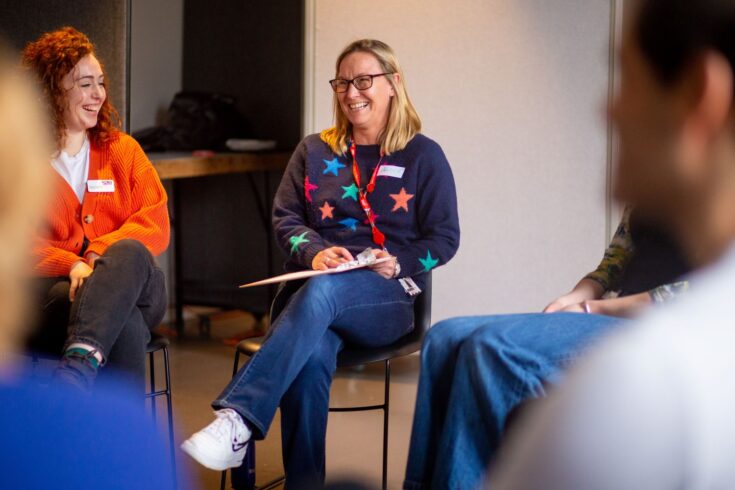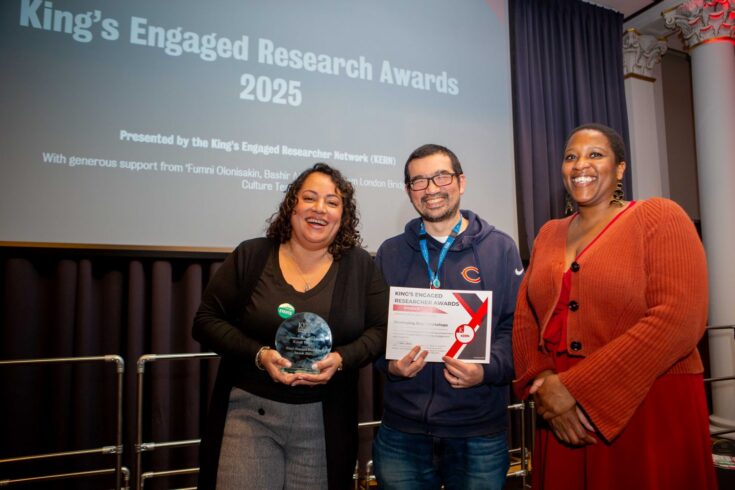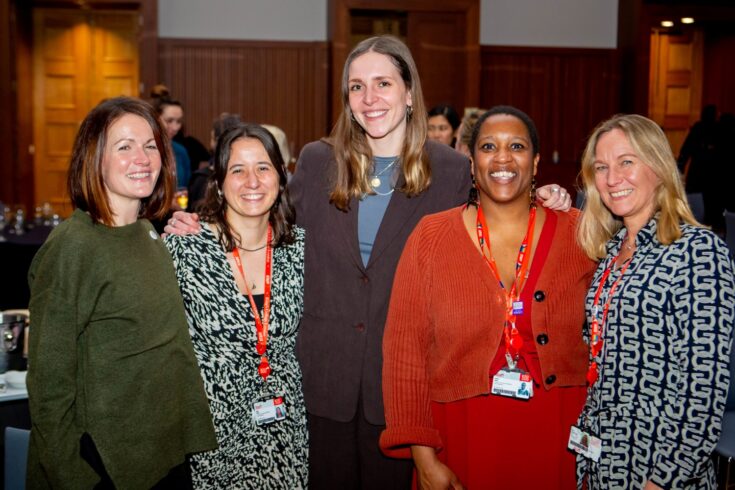King’s College London set up the centre in 2017 with long-term funding from Wellcome Trust and the Engineering and Physical Sciences Research Council (EPSRC).
The aim was to bring together expertise in engineering, physics, chemistry, artificial intelligence and computer science and apply it to medicine.
One of the four key principles that guide the centre is that patient and public involvement and community engagement, should be at the heart of its mission.
Although the funding has now ended, that commitment has been built into the governance structures of the centre, which include a public engagement advisory board with representatives of cancer, heart and dementia charities.
There is an internal public engagement committee of staff and students to champion the cause in their departments. A full-time team is also dedicated to public engagement, with a representative sitting on the centre’s management board.
Support is there at start of research cycle
Senior Public Engagement Manager Alice Taylor-Gee said:
We’ve made patient and public involvement something we do rather than a one-off. What we have built is a culture of engagement at the centre.
Researchers applying for a grant now contact me to ask, for example, whether we have links with a particular charity and how they can find patients from particular backgrounds with specific conditions.
They know that support is available right at the beginning of the research cycle.
Alice’s team has supported researchers on 30 successful grant applications that brought in £40.9 million for the centre, including £955,000 for patient and public involvement activities.

Alice Taylor-Gee sits on a chair delivering a public and patient involvement workshop with researchers. Credit: Centre for Medical Engineering at Kings College London
Award recognises efforts of researchers and community
The King’s Engaged Research Award has been set up to recognise the best examples of patient and public involvement.
One of this year’s winners was a project with community organisation Coin Street. Coin Street had been helping the centre on many projects over the years, while the centre had been providing Coin Street with workshops and half-term activities.
This time, Coin Street raised its own concerns about how families could help neurodiverse children. This led to a series of joint workshops that were designed to help them to understand.
A really enriching experience
Claudia Garcia, Senior Early Years and Family Coordinator at Coin Street, said:
This initiative was in response to local families’ need and desire to learn more about why some children develop differently.
Being part of the team at Coin Street’s Family and Children’s Centre, and contributing to this incredible collaboration with King’s College London, has been a really enriching experience.

Claudia Garcia, Senior Early Years and Family Coordinator at Coin Street is pictured alongside two partners from Kings College London receiving the King’s Engaged Research Award. Credit: Centre for Medical Engineering at Kings College London
Building trust with public pays dividends
Years of working with the community have brought significant benefits to researchers at the centre.
For example, King’s College London recently won significant funding for a total body positron emission tomography scanner, which uses a radioactive tracer to create 3D images of the inside of the body.
Feedback and support from community and patient groups researchers had already worked with was seen as a key element in the successful bid.
Alice added:
Working with our community and charity partners over time, not as a one-off, helps you to build up trust.
It’s not so much about radionuclide research as about: do I trust universities? Do I trust researchers not to misuse my data? Do I trust the healthcare establishment not to test things out on populations like mine?
Researchers learn from new and different perspectives
Alice believes all universities and research centres should be building the kind of structural and long-term support for patient and public involvement that exists at the Centre for Medical Engineering.
She advises researchers to reach out for the help they need whether that’s within the university or through the patient and public involvement leads that many charities have.
Alice added:
Involving those the research will impact is vitally important. Your research should be designed with those you want to help in mind.
They may have different perspectives, they have a lived experience, and researchers will learn from that. Engaging with patients and the community can also improve a researcher’s skills, particularly communication skills and their ability to clearly explain science.

